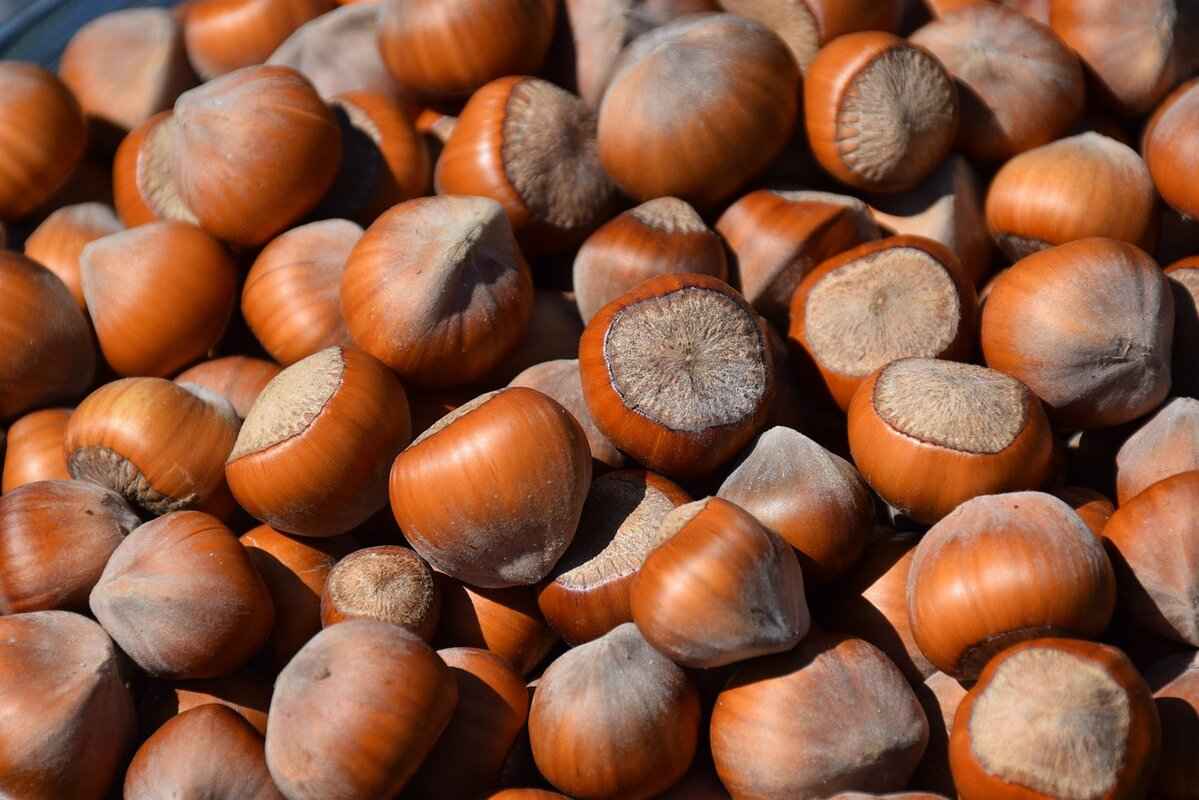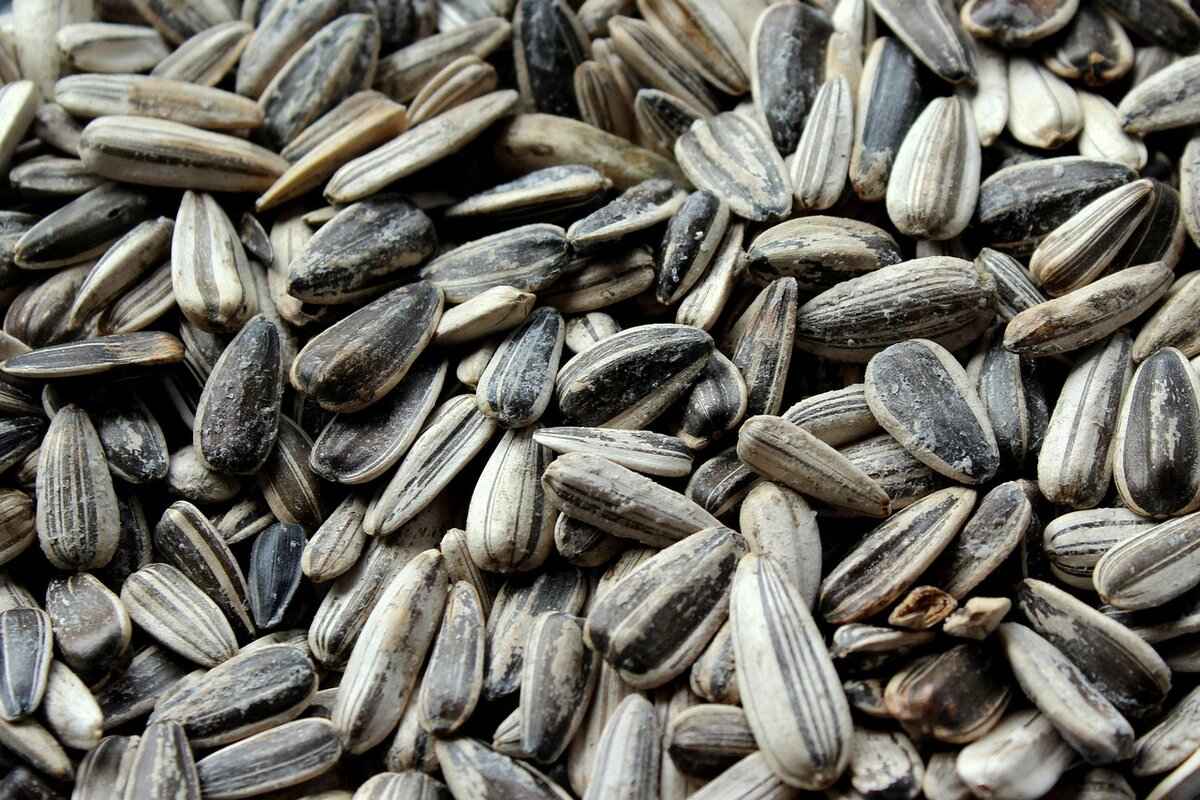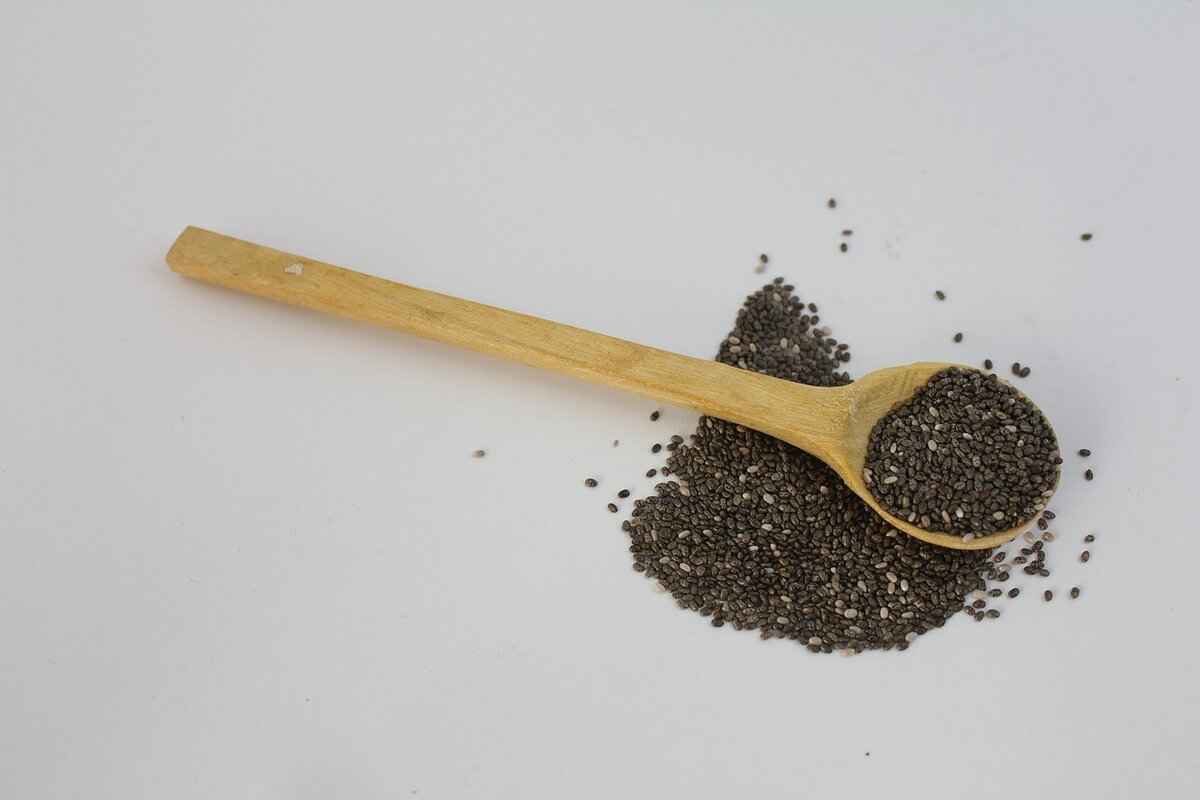Chia seeds have gained significant attention in recent years as a nutritional powerhouse, especially in relation to heart health and cholesterol management. This article delves into the relationship between chia seeds and cholesterol levels, highlighting their nutritional benefits, relevant research findings, and practical ways to include them in your diet.
Chia seeds are small, black or white seeds from the Salvia hispanica plant, native to Mexico and Guatemala. These tiny seeds are packed with nutrients like omega-3 fatty acids, fiber, protein, and various essential minerals, making them a popular choice among health enthusiasts.
Several studies suggest that chia seeds may help improve cholesterol levels. They are believed to lower LDL (bad cholesterol) and raise HDL (good cholesterol). But what is the science behind these claims?
The omega-3 fatty acids found in chia seeds play a crucial role in promoting heart health. These essential fats are known for their ability to reduce inflammation and improve overall lipid profiles, which can positively affect cholesterol levels.
Numerous studies have linked omega-3 fatty acids to lower triglycerides and improved cardiovascular health. For example, a study published in the American Journal of Clinical Nutrition found that regular intake of omega-3s can lead to significant reductions in triglyceride levels.
Experts recommend a daily intake of around 1.1 to 1.6 grams of omega-3 fatty acids for adults. Incorporating chia seeds into your diet can help meet these recommendations, as just one ounce (about 28 grams) of chia seeds provides approximately 5 grams of omega-3 fatty acids.
Chia seeds are an excellent source of soluble fiber, which can aid in lowering cholesterol levels by binding to bile acids in the digestive system. This process helps the body eliminate excess cholesterol, contributing to better heart health.
Adding chia seeds to your meals is both simple and delicious. Here are a few practical tips:
- Chia Pudding: Mix chia seeds with your choice of milk and sweetener, let it sit overnight, and enjoy a nutritious breakfast.
- Smoothies: Blend chia seeds into your favorite smoothie for an added nutritional boost.
- Baking: Substitute a portion of flour with chia seeds in baking recipes for added fiber and omega-3s.
While chia seeds are generally safe for most people, there are some potential side effects to consider:
Some individuals may experience allergies or sensitivities to chia seeds. Symptoms can include digestive discomfort or skin reactions. It’s essential to monitor your body’s response when incorporating them into your diet.
Chia seeds may interact with certain medications, particularly blood thinners, due to their high omega-3 content. If you’re on medication, consult with your healthcare provider before adding chia seeds to your diet.
Nutritionists often recommend chia seeds for their numerous health benefits. They emphasize the importance of incorporating a variety of nutrient-dense foods for optimal heart health.
While current research is promising, there are still gaps in understanding the full impact of chia seeds on cholesterol levels. Future studies could provide more insights into how these seeds can be used effectively in dietary interventions.

What Are Chia Seeds?
Chia seeds are tiny, nutrient-dense seeds that originate from the Salvia hispanica plant, which is native to Mexico and Guatemala. These seeds have gained immense popularity in recent years, often hailed as a superfood due to their rich nutritional profile. They are packed with essential nutrients, including omega-3 fatty acids, fiber, protein, and various vitamins and minerals.
One of the most notable features of chia seeds is their high content of omega-3 fatty acids. These healthy fats are crucial for heart health and have been linked to reduced inflammation and improved cardiovascular function. In fact, chia seeds contain more omega-3s than salmon, making them an excellent plant-based source for those who follow a vegetarian or vegan diet.
In addition to omega-3s, chia seeds are an excellent source of dietary fiber. Just two tablespoons of chia seeds provide around 10 grams of fiber, which is about one-third of the daily recommended intake for adults. This fiber is primarily soluble fiber, which can help lower cholesterol levels by binding to bile acids and aiding in their excretion. As a result, incorporating chia seeds into your diet may contribute to better heart health and improved cholesterol management.
Chia seeds are also rich in antioxidants, which help combat oxidative stress in the body. These antioxidants can protect the body from free radicals, potentially reducing the risk of chronic diseases such as heart disease and cancer. Furthermore, chia seeds are a good source of protein, containing all nine essential amino acids, which makes them a valuable addition to a balanced diet.
For those looking to incorporate chia seeds into their meals, the possibilities are endless. They can be easily added to smoothies, yogurt, oatmeal, or baked goods. Additionally, when soaked in liquid, chia seeds expand and form a gel-like consistency, which can be used as a thickening agent in recipes or as a vegan egg substitute in baking.
Overall, chia seeds are a versatile and nutrient-dense food that can enhance your diet in various ways. Their unique combination of omega-3 fatty acids, fiber, protein, and antioxidants makes them a powerful ally in promoting overall health and well-being.

How Do Chia Seeds Affect Cholesterol Levels?
Chia seeds have gained popularity as a superfood, but their benefits extend beyond just being a trendy health item. One of the most significant areas of interest is their impact on cholesterol levels. This section delves into how chia seeds may influence cholesterol and the scientific backing behind these claims.
Research indicates that chia seeds can play a beneficial role in managing cholesterol levels. They are known to help lower LDL (low-density lipoprotein), commonly referred to as “bad cholesterol,” while simultaneously promoting an increase in HDL (high-density lipoprotein), or “good cholesterol.” This dual action can contribute to improved cardiovascular health.
- Omega-3 Fatty Acids: Chia seeds are rich in alpha-linolenic acid (ALA), a type of omega-3 fatty acid. These fats are essential for heart health as they help reduce inflammation and improve lipid profiles.
- Soluble Fiber: The high soluble fiber content in chia seeds helps bind bile acids, which can lead to a reduction in cholesterol levels. This fiber also aids in digestion and promotes a feeling of fullness.
Numerous studies have explored the relationship between chia seeds and cholesterol levels. For instance, a study published in the Journal of Nutrition found that participants who incorporated chia seeds into their diets experienced a significant reduction in LDL cholesterol levels. Another research indicated that regular consumption of chia seeds was associated with increased levels of HDL cholesterol, which is crucial for cardiovascular health.
To reap the cholesterol-lowering benefits of chia seeds, it is recommended to consume about 1 to 2 tablespoons per day. They can be easily integrated into your diet by adding them to smoothies, yogurt, or oatmeal. Soaking chia seeds in water or milk before consumption can also enhance their digestibility and nutritional absorption.
While chia seeds are generally safe for most individuals, some may experience digestive issues, especially if consumed in large quantities. It is essential to increase water intake when adding chia seeds to your diet to prevent any discomfort.
If you have existing health conditions or are on medication, particularly blood thinners, it is advisable to consult with a healthcare professional before making significant dietary changes. They can provide personalized recommendations based on your health status.
In summary, chia seeds offer a promising avenue for managing cholesterol levels. Their unique combination of omega-3 fatty acids and soluble fiber makes them a powerful ally in promoting heart health. As research continues to unfold, incorporating chia seeds into your daily diet may be a simple yet effective strategy for improving your cholesterol profile.
Omega-3 Fatty Acids and Heart Health
Omega-3 fatty acids are essential fats that play a crucial role in maintaining overall health, particularly when it comes to heart health. Found abundantly in chia seeds, these fatty acids have garnered significant attention for their potential benefits in reducing inflammation and improving lipid profiles. This article delves deeper into how omega-3s from chia seeds can positively affect your cardiovascular health.
Omega-3 fatty acids are a group of polyunsaturated fats that are vital for various bodily functions. The three main types include Ala (alpha-linolenic acid), EPA (eicosapentaenoic acid), and DHA (docosahexaenoic acid). While EPA and DHA are primarily found in fish and algae, ALA is predominantly found in plant sources like chia seeds.
Research indicates that omega-3 fatty acids can significantly enhance heart health by:
- Reducing Inflammation: Chronic inflammation is a key contributor to heart disease. Omega-3s help lower the production of inflammatory substances in the body.
- Improving Lipid Profiles: Regular consumption of omega-3s can lead to a reduction in triglycerides and an increase in HDL (good cholesterol), which is beneficial for heart health.
- Lowering Blood Pressure: Omega-3 fatty acids have been shown to help reduce blood pressure levels, further decreasing the risk of heart disease.
Numerous studies have explored the relationship between omega-3 fatty acids and cardiovascular health. For instance, a study published in the Journal of the American College of Cardiology found that individuals with higher omega-3 intake had a significantly lower risk of heart attacks and strokes. Additionally, a meta-analysis revealed that omega-3 supplementation led to a notable decrease in triglyceride levels.
To reap the heart health benefits of omega-3 fatty acids, it’s essential to consume them regularly. The American Heart Association recommends at least two servings of fatty fish per week, which provides a good source of EPA and DHA. For those relying on plant-based sources like chia seeds, a daily intake of about 1-2 tablespoons is suggested to achieve beneficial levels of ALA.
Integrating chia seeds into your daily meals is simple and versatile. Here are some practical tips:
- Add chia seeds to smoothies for an extra nutrient boost.
- Sprinkle them on salads or yogurt for added texture and health benefits.
- Use chia seeds to create puddings or baked goods, enhancing both flavor and nutrition.
Here are a couple of heart-healthy recipes featuring chia seeds:
- Chia Seed Pudding: Mix chia seeds with almond milk and a sweetener of choice. Let it sit overnight and top with fresh fruits.
- Chia-Infused Smoothie: Blend chia seeds with spinach, banana, and your choice of milk for a nutrient-packed smoothie.
While chia seeds offer numerous health benefits, they may not be suitable for everyone. Some individuals may experience digestive issues if consuming large amounts of chia seeds. It’s essential to start with small quantities and gradually increase intake.
Nutritionists often advocate for the inclusion of omega-3 fatty acids in the diet due to their extensive health benefits. They emphasize that incorporating sources like chia seeds can be a practical and effective way to enhance heart health.
Studies Supporting Omega-3 Benefits
In recent years, the health benefits of omega-3 fatty acids have garnered significant attention, particularly in relation to cardiovascular health. Omega-3s are essential fats that the body cannot produce on its own, making dietary sources crucial. This section delves into various studies that support the idea that omega-3 fatty acids, found abundantly in chia seeds, can lower triglycerides and enhance overall heart health.
Research consistently highlights the cardioprotective properties of omega-3 fatty acids. A meta-analysis published in the Journal of the American College of Cardiology reviewed multiple studies and concluded that higher omega-3 intake is associated with a significant reduction in triglyceride levels. Specifically, it was found that individuals who consumed omega-3s regularly had triglyceride levels that were, on average, 20-30% lower compared to those who did not.
The benefits of omega-3 fatty acids extend beyond just triglyceride reduction. According to a study in The New England Journal of Medicine, omega-3s can also improve overall lipid profiles by increasing levels of high-density lipoprotein (HDL) cholesterol, often referred to as “good” cholesterol. This is significant because higher HDL levels are linked to a lower risk of heart disease.
Chronic inflammation is a key factor in the development of heart disease. Omega-3 fatty acids possess anti-inflammatory properties, which can help mitigate this risk. A study published in Circulation indicated that individuals with higher omega-3 levels had lower markers of inflammation in their blood, suggesting a protective effect against cardiovascular issues.
Longitudinal studies have shown that consistent omega-3 intake can lead to lasting cardiovascular benefits. For instance, a comprehensive study conducted over 10 years revealed that individuals who regularly consumed omega-3-rich foods had a markedly reduced risk of heart attacks and strokes. This underscores the importance of integrating omega-3 sources, such as chia seeds, into one’s diet.
To reap the cardiovascular benefits of omega-3s, experts recommend a daily intake of 250-500 mg of combined EPA and DHA (the two primary types of omega-3s). This can typically be achieved through a diet rich in fatty fish or plant-based sources like chia seeds. For those who prefer plant sources, incorporating just two tablespoons of chia seeds can provide a substantial amount of omega-3s.
- Add chia seeds to smoothies for a nutrient boost.
- Sprinkle chia seeds on salads or yogurt for added texture and health benefits.
- Use chia seeds in baking, such as in muffins or breads, to enhance omega-3 content.
In summary, the body of research supporting the benefits of omega-3 fatty acids is robust and compelling. From lowering triglycerides to improving overall cardiovascular health, omega-3s play a crucial role in heart health. Incorporating sources like chia seeds into your diet can be an easy and effective way to ensure you receive these essential nutrients.
Daily Intake Recommendations
Understanding the appropriate daily intake of omega-3 fatty acids is crucial for maintaining optimal health. Omega-3s are essential fats that our bodies cannot produce on their own, making it necessary to obtain them through diet or supplements. This section outlines the recommended daily intake based on expert guidelines and provides insights into how to achieve these recommendations effectively.
Omega-3 fatty acids play a vital role in various bodily functions, including:
- Heart Health: They help reduce the risk of heart disease by lowering triglyceride levels and improving overall cholesterol profiles.
- Brain Function: Omega-3s are crucial for cognitive function and may help prevent cognitive decline as we age.
- Inflammation Reduction: They possess anti-inflammatory properties that can alleviate symptoms of chronic conditions such as arthritis.
According to various health organizations, the following are the general recommendations for omega-3 intake:
- Adults: Aim for at least 250-500 mg of combined EPA and DHA (two types of omega-3s) per day for general health.
- Pregnant and Nursing Women: It is recommended to increase intake to 200-300 mg of DHA daily to support fetal and infant development.
- Individuals with Heart Disease: A higher intake of 1,000 mg per day may be beneficial for those with existing heart conditions.
Incorporating omega-3s into your diet can be achieved through various sources:
- Fatty Fish: Salmon, mackerel, sardines, and trout are excellent sources.
- Plant-Based Options: Flaxseeds, chia seeds, and walnuts provide ALA (alpha-linolenic acid), another type of omega-3.
- Supplements: Fish oil or algal oil supplements can be an effective way to meet your omega-3 needs, especially for those who do not consume fish.
To meet your omega-3 intake goals, consider the following strategies:
- Meal Planning: Incorporate fatty fish into your meals at least twice a week.
- Snacking Wisely: Choose snacks like walnuts or chia seed pudding to boost your omega-3 intake.
- Consider Supplements: If dietary sources are insufficient, consult with a healthcare provider about the necessity of omega-3 supplements.
It can be beneficial to monitor your omega-3 levels, especially if you are at risk for heart disease or have specific dietary restrictions. Blood tests can determine your omega-3 index, helping you assess whether your intake is adequate.
In conclusion, understanding the recommended daily intake of omega-3 fatty acids empowers consumers to make informed dietary choices. By incorporating a variety of sources and being mindful of your intake, you can harness the numerous health benefits that omega-3s offer.
Fiber Content and Cholesterol Management
Chia seeds, derived from the Salvia hispanica plant, are not only celebrated for their rich nutrient profile but also for their significant fiber content. These tiny seeds pack a powerful punch when it comes to heart health, primarily due to their high levels of soluble fiber. This type of fiber plays a crucial role in managing cholesterol levels, which is vital for maintaining a healthy cardiovascular system.
Soluble fiber works by dissolving in water to form a gel-like substance in the digestive tract. This gel binds to bile acids, which are substances produced by the liver to help digest fats. When soluble fiber binds to bile acids, it promotes their excretion from the body. As a result, the liver must use cholesterol to produce more bile acids, effectively lowering the levels of low-density lipoprotein (LDL), often referred to as “bad cholesterol”. This process not only helps in reducing cholesterol levels but also contributes to overall heart health.
Research has shown that diets high in soluble fiber can lead to a significant reduction in LDL cholesterol. A study published in the American Journal of Clinical Nutrition found that participants who increased their intake of soluble fiber experienced a marked decrease in cholesterol levels over time. This finding aligns with the recommendations from health organizations, which advocate for a diet rich in fiber as a means to combat heart disease.
In addition to lowering LDL cholesterol, fiber also has the potential to increase levels of high-density lipoprotein (HDL), or “good cholesterol”. HDL cholesterol is beneficial because it helps transport cholesterol away from the arteries and back to the liver, where it can be processed and removed from the body. This dual action of chia seeds—lowering LDL while potentially raising HDL—makes them a powerful ally in cholesterol management.
To reap the heart health benefits of chia seeds, it’s essential to incorporate them into your daily diet. Here are some practical ways to do so:
- Chia Pudding: Mix chia seeds with your choice of milk or yogurt and let them sit overnight. Add fruits and nuts for a nutritious breakfast.
- Smoothies: Blend chia seeds into your favorite smoothie for an added fiber boost.
- Baking: Incorporate chia seeds into baked goods like muffins or bread for an extra nutritional punch.
- Salads: Sprinkle chia seeds on top of salads for added texture and health benefits.
When introducing chia seeds into your diet, it’s crucial to start with small amounts and gradually increase your intake. This approach allows your digestive system to adjust to the increased fiber, minimizing any potential discomfort.
While chia seeds offer numerous benefits, they are not a magic bullet for cholesterol management. A balanced diet, regular physical activity, and maintaining a healthy weight are all essential components of heart health. Consulting with a healthcare provider or a nutritionist can provide personalized recommendations tailored to individual health needs.
In summary, the fiber content in chia seeds plays a significant role in managing cholesterol levels. By binding to bile acids and promoting their excretion, soluble fiber helps lower LDL cholesterol while potentially increasing HDL cholesterol. Incorporating chia seeds into a balanced diet can be an effective strategy for improving heart health and reducing the risk of cardiovascular diseases.

Incorporating Chia Seeds into Your Diet
can be an enjoyable and nutritious endeavor. With their mild flavor and versatile texture, chia seeds can easily enhance a variety of meals. Here are some practical tips to help you seamlessly integrate these tiny powerhouses into your daily routine.
- Chia Seed Pudding: Combine chia seeds with your choice of milk (dairy or plant-based) and let them sit overnight. The next morning, enjoy a creamy pudding topped with fruits, nuts, or granola.
- Smoothies: Blend a tablespoon of chia seeds into your morning smoothie. They will not only add thickness but also boost the nutritional profile with omega-3s and fiber.
- Oatmeal: Stir chia seeds into your oatmeal while cooking. This will add a delightful crunch and enhance the fiber content.
- Salad Toppings: Sprinkle chia seeds over salads for added texture and nutrition. They pair well with a variety of dressings and ingredients.
- Soups and Stews: Incorporate chia seeds into soups and stews as a thickening agent. They absorb liquid and create a satisfying consistency.
- Baking: Substitute a portion of flour in your baking recipes with ground chia seeds. This can enhance the health benefits of muffins, breads, or pancakes.
- Energy Bars: Make homemade energy bars with oats, nuts, and a handful of chia seeds for a nutrient-packed snack.
- Chia Jam: Create a healthy jam by mixing chia seeds with mashed fruits. This can serve as a delicious spread for toast or pancakes.
- Frozen Treats: Blend chia seeds into yogurt or smoothies and freeze them in molds for a refreshing treat on hot days.
To maximize the health benefits of chia seeds, it is recommended to consume about 1-2 tablespoons per day. Before consumption, consider soaking them in water or your favorite liquid for at least 30 minutes. This process allows them to expand and become gel-like, making them easier to digest and enhancing their nutrient absorption.
While chia seeds are generally safe for most people, it is essential to start with small amounts if you’re new to them. This can help your body adjust to the increased fiber intake. Additionally, ensure you drink plenty of water when consuming chia seeds to prevent any digestive discomfort.
In summary, integrating chia seeds into your diet is not only simple but also offers a myriad of health benefits. Whether you choose to add them to your breakfast, lunch, dinner, or snacks, these tiny seeds can significantly enhance your meals. With their versatility and nutritional value, chia seeds are a fantastic addition to a heart-healthy diet.
Chia Seed Recipes for Heart Health
Chia seeds, often hailed as a superfood, are not just a trendy addition to smoothies and bowls; they also offer a wealth of health benefits, especially for heart health. Incorporating chia seeds into your recipes can significantly enhance their nutritional value, making them a fantastic choice for anyone looking to improve their diet. Below are various heart-healthy recipes featuring chia seeds that are both delicious and easy to prepare.
This simple yet satisfying recipe is perfect for breakfast or a snack. To make chia seed pudding:
- Combine 1/4 cup chia seeds with 1 cup almond milk (or any milk of your choice).
- Add 1 tablespoon honey or maple syrup for sweetness.
- Mix well and let it sit in the refrigerator for at least 4 hours or overnight.
- Top with your favorite fruits, nuts, and a sprinkle of cinnamon before serving.
Boost your morning routine with a nutritious smoothie:
- Blend 1 banana, 1 cup spinach, and 1 tablespoon chia seeds.
- Add 1 cup almond milk and a handful of ice for a refreshing drink.
- For extra flavor, include a tablespoon of nut butter or a scoop of protein powder.
These energy bites are perfect for a quick snack or pre-workout boost:
- In a bowl, mix 1 cup rolled oats, 1/2 cup nut butter, and 1/4 cup honey.
- Add 1/4 cup chia seeds and 1/4 cup dark chocolate chips for a delicious treat.
- Roll into small balls and refrigerate for at least 30 minutes before enjoying.
Make a healthy alternative to store-bought jam:
- Blend 2 cups of fresh or frozen fruit (like strawberries or blueberries) with 2 tablespoons honey until smooth.
- Add 2 tablespoons chia seeds and let the mixture sit for 15 minutes to thicken.
- Store in the refrigerator for up to one week.
Elevate your salads with a nutritious dressing:
- In a jar, combine 1/4 cup olive oil, 1/4 cup apple cider vinegar, and 1 tablespoon chia seeds.
- Add 1 teaspoon Dijon mustard and salt and pepper to taste.
- Shake well and drizzle over your favorite salad.
Incorporating chia seeds into these recipes not only boosts their nutritional profile but also adds a delightful texture. With their high fiber content and heart-healthy omega-3 fatty acids, chia seeds can play a significant role in maintaining a healthy heart. So, whether you’re enjoying a creamy pudding or a vibrant smoothie, these recipes are sure to keep your heart happy and healthy.
Dosage and Preparation Tips
When it comes to enhancing your health with chia seeds, understanding the best ways to prepare them is essential. These tiny seeds pack a powerful nutritional punch, and their health benefits can be maximized through proper preparation and dosage.
Chia seeds are unique in their ability to absorb water and form a gel-like substance. This property not only makes them versatile in recipes but also enhances their digestibility and nutrient absorption. By properly preparing chia seeds, you can unlock their full potential and enjoy the maximum health benefits.
The general recommendation for chia seed consumption is about 1 to 2 tablespoons per day. This amount provides a good balance of nutrients, including fiber, protein, and omega-3 fatty acids. However, individual needs may vary based on dietary goals and health conditions.
- 1 tablespoon: Ideal for beginners or those looking to add chia seeds gradually to their diet.
- 2 tablespoons: Recommended for individuals seeking to enhance their omega-3 intake and overall nutrient consumption.
There are several effective methods to prepare chia seeds, each offering unique benefits:
- Soaking: Soaking chia seeds in water or any liquid for at least 30 minutes allows them to expand and form a gel. This method enhances their digestibility and makes them easier to incorporate into smoothies, oatmeal, or yogurt.
- Chia Pudding: Combine soaked chia seeds with your choice of milk or plant-based alternatives, sweeteners, and flavorings. Let the mixture sit in the refrigerator for a few hours or overnight to create a delicious and nutritious pudding.
- Adding to Recipes: Chia seeds can be added directly to baked goods, salads, or soups. They can also be sprinkled on top of dishes for added texture and nutrition.
Integrating chia seeds into your meals can be both simple and enjoyable. Here are some practical tips:
- Start your day with a chia seed smoothie by blending fruits, yogurt, and soaked chia seeds.
- Use chia seeds as a thickening agent in soups or sauces.
- Sprinkle chia seeds on salads for an added crunch and nutritional boost.
While chia seeds are generally safe for most people, it’s important to consider a few factors:
- Hydration: When consuming chia seeds, ensure you drink plenty of water, especially if you eat them dry, as they can absorb liquid and expand in your stomach.
- Gradual Introduction: If you’re new to chia seeds, start with a smaller amount to see how your body reacts before increasing your intake.
By following these , you can effectively incorporate chia seeds into your diet and enjoy their numerous health benefits. Remember, the key to maximizing their potential lies in understanding how to prepare and consume them correctly.

Potential Side Effects and Considerations
Chia seeds are celebrated for their nutritional benefits, but it is essential to recognize that they may not be suitable for everyone. This section discusses potential side effects and considerations for individuals with specific health conditions, ensuring that you make informed dietary choices.
Some individuals may experience allergic reactions to chia seeds. Symptoms can include skin rashes, itching, or gastrointestinal discomfort. If you notice any of these symptoms after consuming chia seeds, it is crucial to discontinue use and consult a healthcare professional.
Chia seeds may interact with certain medications, particularly those that affect blood clotting. Due to their high omega-3 fatty acid content, they can potentially enhance the effects of blood thinners such as warfarin. If you are on anticoagulant therapy, consult your doctor before adding chia seeds to your diet.
Due to their high fiber content, chia seeds can cause digestive discomfort if consumed in large quantities, especially for those who are not used to a high-fiber diet. It is advisable to start with small amounts and gradually increase your intake to allow your digestive system to adjust. Drinking plenty of water is also recommended to prevent any potential issues.
- Individuals with Choking Risks: Since chia seeds can absorb water and expand, they may pose a choking hazard for individuals with swallowing difficulties.
- Pregnant or Nursing Women: While chia seeds are generally safe, it’s best for pregnant or nursing women to consult a healthcare provider before including them in their diet.
- People with Certain Health Conditions: Those with gastrointestinal disorders or conditions such as irritable bowel syndrome (IBS) may need to limit their intake due to the high fiber content.
To enjoy the benefits of chia seeds while minimizing risks, consider the following tips:
1. Start with 1 teaspoon of chia seeds daily.2. Gradually increase to 1-2 tablespoons as tolerated.3. Always soak chia seeds in water or add them to smoothies to prevent choking.4. Monitor your body's response and consult a healthcare provider if you experience adverse effects.
In summary, while chia seeds are a nutrient powerhouse, they may not be appropriate for everyone. Understanding potential side effects and taking necessary precautions can help you safely enjoy their numerous health benefits. Always consult with a healthcare provider if you have concerns or pre-existing health conditions.
Allergies and Sensitivities
Chia seeds are celebrated for their numerous health benefits, but some individuals may experience allergies or sensitivities to these tiny superfoods. It is essential to be aware of potential reactions and know how to handle them effectively.
If you suspect a chia seed allergy, watch for the following symptoms:
- Skin Reactions: Some individuals may develop rashes, hives, or eczema after consuming chia seeds.
- Gastrointestinal Issues: Symptoms such as bloating, gas, or diarrhea can occur in those with sensitivities.
- Respiratory Problems: Allergic reactions might lead to difficulty breathing, wheezing, or nasal congestion.
- Anaphylaxis: In rare cases, a severe allergic reaction can occur, which requires immediate medical attention.
It is crucial to take appropriate steps if you experience any of the symptoms mentioned above:
- Stop Consumption: Immediately discontinue the use of chia seeds in your diet.
- Consult a Healthcare Professional: Seek advice from a doctor or allergist for proper diagnosis and treatment.
- Keep a Food Diary: Documenting what you eat can help identify triggers and patterns related to your symptoms.
- Consider Allergy Testing: An allergist can perform tests to determine if you are allergic to chia seeds or other substances.
To minimize the risk of allergic reactions to chia seeds, consider the following precautions:
- Read Labels Carefully: Always check food labels for chia seeds in processed foods.
- Introduce Slowly: If trying chia seeds for the first time, start with a small amount to monitor your body’s response.
- Be Aware of Cross-Contamination: If you have a severe allergy, be cautious of cross-contamination with chia seeds in food preparation areas.
If you find yourself allergic or sensitive to chia seeds, there are several alternatives that can provide similar health benefits:
- Flaxseeds: Rich in omega-3 fatty acids and fiber, flaxseeds are a great substitute.
- Hemp Seeds: These seeds offer a good source of protein and healthy fats.
- Sunflower Seeds: High in vitamin E and magnesium, sunflower seeds can be a nutritious option.
In summary, while chia seeds can be a valuable addition to many diets, it is important to recognize and respond to any allergies or sensitivities that may arise. By staying informed and taking necessary precautions, you can enjoy the benefits of these seeds without compromising your health.
Interactions with Medications
Chia seeds, known for their numerous health benefits, have gained popularity as a superfood. However, it is crucial to understand that they may interact with certain medications, particularly blood thinners. This section will explore these interactions in detail, highlighting important considerations for individuals taking medications.
Chia seeds are tiny, nutrient-rich seeds from the Salvia hispanica plant. They are particularly high in omega-3 fatty acids, fiber, and antioxidants. These nutrients contribute to various health benefits, including improved heart health and cholesterol management. However, their potent properties can also lead to potential interactions with medications.
One of the primary concerns regarding chia seeds is their potential interaction with blood-thinning medications such as warfarin and aspirin. The seeds contain high levels of alpha-linolenic acid (ALA), a type of omega-3 fatty acid that can have a blood-thinning effect. This can enhance the effects of anticoagulant medications, leading to an increased risk of bleeding.
- Consult Your Healthcare Provider: If you are on blood thinners or other medications, it is essential to discuss the incorporation of chia seeds into your diet with your healthcare provider. They can provide personalized advice based on your health status and medication regimen.
- Monitor Your Intake: If you receive approval to consume chia seeds, start with a small amount. Gradually increase your intake while monitoring for any unusual symptoms, such as excessive bruising or prolonged bleeding.
- Be Aware of Other Dietary Sources: Consider other sources of omega-3s in your diet, such as fatty fish, flaxseeds, and walnuts. Balancing these sources can help manage your overall omega-3 intake.
While chia seeds are generally safe for most people, some may experience side effects. These can include gastrointestinal discomfort, such as bloating or gas, particularly if consumed in large quantities. Additionally, individuals with certain allergies or sensitivities should be cautious.
Although current research highlights the potential interactions between chia seeds and blood thinners, more studies are needed to fully understand these effects. It is vital to remain informed, as ongoing research may provide new insights into the safety and efficacy of chia seeds for those on medication.
Incorporating chia seeds into your diet can be beneficial, but it is crucial to approach this superfood with caution if you are on medications, especially blood thinners. By consulting with healthcare professionals and being aware of your dietary choices, you can enjoy the health benefits of chia seeds while minimizing any potential risks.

Expert Opinions on Chia Seeds and Cholesterol
Chia seeds have gained significant attention in the health community, particularly regarding their potential role in managing cholesterol levels. To provide a comprehensive understanding, we gathered insights from nutritionists and health professionals who specialize in dietary impacts on cardiovascular health.
What Do Experts Say About Chia Seeds?
Nutritionists frequently highlight the nutritional profile of chia seeds, which includes a rich source of omega-3 fatty acids, fiber, and antioxidants. According to Dr. Sarah Thompson, a registered dietitian, “Chia seeds are a fantastic addition to any diet aimed at improving heart health. Their high fiber content can help lower LDL cholesterol while promoting HDL cholesterol.” This dual action is crucial for maintaining a healthy cholesterol balance.
How Do Chia Seeds Support Cholesterol Management?
Experts emphasize that the soluble fiber in chia seeds plays a vital role in cholesterol management. It binds to bile acids in the digestive system, which helps in reducing the levels of LDL cholesterol. Dr. Michael Anderson, a cardiologist, notes, “The fiber in chia seeds not only aids in cholesterol management but also enhances overall digestive health. This can lead to better nutrient absorption and improved metabolic rates.”
Are There Any Research Gaps?
While the current research is promising, experts acknowledge that more studies are needed to understand the full extent of chia seeds’ impact on cholesterol levels. Dr. Emily Chen, a nutrition researcher, states, “We need larger, long-term studies to confirm the benefits of chia seeds on cholesterol and heart health. Although preliminary findings are encouraging, we must approach these claims with caution.” This highlights the importance of ongoing research in the field.
Practical Recommendations from Nutritionists
- Incorporate Chia Seeds Gradually: Start with a small amount, such as one tablespoon per day, and gradually increase to avoid digestive discomfort.
- Mix with Other Foods: Add chia seeds to smoothies, yogurt, or oatmeal to enhance their nutritional value.
- Stay Hydrated: Chia seeds absorb water, so it’s essential to drink plenty of fluids when consuming them.
What About Potential Side Effects?
Experts caution that while chia seeds are generally safe for most people, some may experience mild gastrointestinal issues. Dr. Laura Green, a gastroenterologist, advises, “If you have a history of digestive problems, it’s wise to consult with a healthcare provider before adding chia seeds to your diet.” Additionally, individuals on blood thinners should be cautious, as chia seeds may enhance the effects of these medications.
Final Thoughts from Health Professionals
In summary, expert opinions underscore the potential of chia seeds as a beneficial addition to a heart-healthy diet. Their rich nutrient profile, particularly in omega-3 fatty acids and fiber, supports cholesterol management and overall cardiovascular health. However, as with any dietary change, it is essential to consult with healthcare professionals to tailor recommendations to individual health needs.
Nutritionist Recommendations
Nutritionists often highlight the importance of incorporating chia seeds into a balanced diet due to their impressive nutritional profile and health benefits. These tiny seeds, packed with essential nutrients, can be a valuable addition to various meals and snacks. This section delves into expert recommendations on how best to include chia seeds in your daily nutrition.
Chia seeds are considered a superfood for several reasons. They are an excellent source of omega-3 fatty acids, which are crucial for heart health. Additionally, their high fiber content aids in digestion and helps maintain healthy cholesterol levels. Nutritionists emphasize that these seeds can be particularly beneficial for those looking to improve their overall health and wellness.
- Start Your Day with Chia Pudding: Mix chia seeds with your choice of milk or yogurt and let them sit overnight. This creates a delicious and nutritious pudding that can be topped with fruits and nuts.
- Add to Smoothies: Blend chia seeds into your favorite smoothie for an extra boost of nutrition. They blend well without altering the taste significantly.
- Use as a Thickening Agent: Chia seeds can absorb liquid and create a gel-like consistency. Use them to thicken soups or sauces.
- Baking with Chia: Substitute a portion of flour in baking recipes with ground chia seeds to enhance the nutritional value of breads and muffins.
Nutritionists typically recommend a daily intake of about 1 to 2 tablespoons of chia seeds. This amount provides a substantial dose of nutrients without overwhelming your diet. It’s important to gradually increase your intake to allow your digestive system to adjust, as chia seeds are high in fiber.
While chia seeds offer numerous health benefits, nutritionists advise caution for individuals with certain health conditions. For instance, those with digestive issues should start with smaller amounts to prevent discomfort. Additionally, since chia seeds can absorb water, it’s crucial to drink plenty of fluids when consuming them to avoid potential digestive blockages.
Many nutritionists advocate for chia seeds as a versatile ingredient that can enhance the nutritional quality of meals. They emphasize the importance of combining chia seeds with other nutrient-dense foods to maximize health benefits. For example, pairing chia seeds with fruits and nuts can create a balanced snack that provides protein, healthy fats, and fiber.
Nutritionists often point out that chia seeds can aid in weight management due to their high fiber content, which promotes feelings of fullness. Including chia seeds in meals can help control appetite and reduce overall calorie intake, making them a strategic choice for those looking to maintain or lose weight.
In summary, nutritionists recommend chia seeds as an effective way to boost your diet. Their versatility, combined with their numerous health benefits, makes them a valuable addition to any meal plan. By incorporating chia seeds into your daily routine, you can enjoy their nutritional advantages while enhancing the taste and texture of your favorite dishes.
Research Gaps and Future Studies
The exploration of chia seeds and their impact on cholesterol levels has garnered significant attention in recent years. While existing research presents promising findings, it is essential to acknowledge that gaps remain. This section will delve into the areas where further studies are necessary to fully comprehend the effects of chia seeds on cholesterol management.
Understanding the importance of research gaps is crucial for advancing scientific knowledge. Gaps in research can hinder the development of effective dietary recommendations and treatment plans. Addressing these gaps not only enhances our understanding of chia seeds but also informs healthcare professionals and consumers alike.
- Long-Term Effects: Most studies conducted so far have focused on short-term consumption of chia seeds. There is a need for longitudinal studies to evaluate the long-term effects of chia seeds on cholesterol levels and overall heart health.
- Mechanisms of Action: While some research suggests that chia seeds may lower LDL cholesterol and raise HDL cholesterol, the precise biological mechanisms behind these effects are not fully understood. More studies are necessary to elucidate how chia seeds interact with metabolic pathways.
- Population Variability: Different populations may respond differently to chia seeds based on genetic, dietary, and lifestyle factors. Research should explore how various demographics, including age, gender, and existing health conditions, influence the effectiveness of chia seeds in cholesterol management.
- Comparison with Other Foods: To better understand the unique benefits of chia seeds, comparative studies with other superfoods known for cholesterol management should be conducted. This would help clarify their relative effectiveness.
Conducting comprehensive research on chia seeds and cholesterol levels poses several challenges:
- Standardization of Dosage: Variability in the dosage of chia seeds used in studies can lead to inconsistent results. Establishing a standardized dosage is vital for future research.
- Control of Dietary Variables: Participants’ overall diets can significantly impact cholesterol levels. Researchers must control for these variables to isolate the effects of chia seeds accurately.
- Funding and Resources: Research on niche dietary components often faces funding limitations, making it challenging to conduct large-scale studies necessary for robust conclusions.
Future research should aim for a multi-faceted approach:
- Randomized Controlled Trials: Implementing rigorous randomized controlled trials will provide more reliable data on the effects of chia seeds on cholesterol levels.
- Meta-Analyses: Conducting meta-analyses of existing studies can help identify trends and draw more comprehensive conclusions from available data.
- Collaboration Across Disciplines: Interdisciplinary collaboration among nutritionists, cardiologists, and researchers can lead to more holistic studies that consider various health aspects.
In conclusion, while the current body of research on chia seeds and cholesterol is promising, there is a clear need for further studies to fill existing gaps. By addressing these areas, we can enhance our understanding of how chia seeds may contribute to heart health and provide informed dietary recommendations.
Frequently Asked Questions
- What are the health benefits of chia seeds?
Chia seeds are packed with omega-3 fatty acids, fiber, and antioxidants. They can help lower bad cholesterol, improve heart health, and promote digestive health due to their high fiber content.
- How can I incorporate chia seeds into my diet?
You can easily add chia seeds to your meals! Try mixing them into smoothies, sprinkling them on yogurt, or adding them to oatmeal. They can also be used in baking or as a thickening agent in recipes.
- Are there any side effects of consuming chia seeds?
While chia seeds are generally safe, some people may experience digestive issues, especially if consumed in large quantities. It’s best to start with a small amount and increase gradually.
- Can chia seeds interact with medications?
Yes, chia seeds may interact with blood-thinning medications due to their omega-3 content. If you’re on medication, it’s a good idea to consult with your healthcare provider before adding chia seeds to your diet.
- How much chia seeds should I consume daily?
The recommended daily intake is about 1-2 tablespoons of chia seeds. This amount can provide significant health benefits without overwhelming your digestive system.














